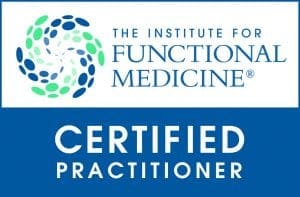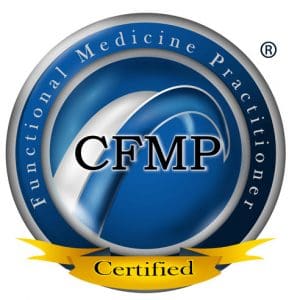Inflammation is a necessary response, and it can initiate host defense response and repair damaged tissue. However, an uncontrolled inflammatory signal can cause prolonged inflammatory cytokines production, resulting in serious disorders and tissue damage. Nevertheless, the inflammation process can be described and a cascade sequence in which IL-1b plays a fundamental part. As part of the cascade sequence, the proinflammatory cytokine IL-1b requires to be activated by a multiprotein complex called the inflammasome. To modulate this inflammatory cascade, nutritional modulation can contribute by interacting with the NLRP3 inflammasome pathway.
What is an inflammasome?
As mentioned before, inflammasomes are multiprotein complexes. They are part of the innate immune system. Consequently, inflammasomes have the primary role of init
Inflammation is a necessary response, and it can initiate host defense response and repair damaged tissue. However, an uncontrolled inflammatory signal can cause prolonged inflammatory cytokines production, resulting in serious disorders and tissue damage. Nevertheless, the inflammation process can be described and a cascade sequence in which IL-1b plays a fundamental part. As part of the cascade sequence, the proinflammatory cytokine IL-1b requires to be activated by a multiprotein complex called the inflammasome. To modulate this inflammatory cascade, nutritional modulation can contribute by interacting with the NLRP3 inflammasome pathway.
Table of Contents
What is an inflammasome?
As mentioned before, inflammasomes are multiprotein complexes. They are part of the innate immune system. Consequently, inflammasomes have the primary role of initiating the inflammation cascade when a bacterial or viral infection occurs. Â Furthermore, one of the most studies inflammasome is NLRP3, which is comprised of NLRP3 sensor, ASC (Apoptosis-associated speck-like protein containing a CARD) adaptor, and caspase-1 protease.
NLRP3 (NOD-like receptor pyrin domain containing 3)
NOD-like receptors are considered a pattern recognition receptor (PPR) that sense a wide range of PAMPs (pathogen-associated molecular patterns). Besides this, NLRP3 can recognize damage-associated molecular patterns (DAMPs). Furthermore, when the PPR senses a disturbing presence, it changes and turns into a PPR oligomer. Once the PPR oligomer is formed, the ASC can be recruited from the cytoplasm. Later, this PPR-ASC dimer can recruit dormant caspases and activate them. Lastly, this caspase activation results in the cleavage of inflammatory cytokines such as pro-interleukin-1B (pro- IL-1B) and pro-IL-18.
IL-1b
The activation of IL-1b must be tightly regulated; this is why it requires two signals to become functional.
Priming: The first activating signal. It is fueled when PAMPs get sensed by TLR, followed by the induction of the inflammasome components. Furthermore, this signal upregulates the inactive cytokine precursor pro-IL-1b.
Second signal: This signal is mediated by DAMPs and PAMPs, ultimately leading to the assembly between the ASC and caspase-1. Consequently, the caspase-1 cleavage initiates the secretion of proinflammatory cytokine IL-1b.
NLRP3 activation mechanisms:
- Intracellular release of oxidized mitochondrial DNA (mtDNA).
- Decreased intracellular cAMP level.
- Formation of bacterial toxins.
- Presence of reactive oxygen species (ROS).
- Potassium (K+) efflux.
The main function of inflammasome activation is to protect the host against invading organisms. However, several endogenous (self-derived) factors can induce the NLRP3 leading to allergic responses or other diseases.
Diseases linked to NLRP3 activation. |
| Alzheimer’s disease: AB proteins from aggregates lead to NLRP3 activation, promoting further inflammation. |
| Gout: NLRP3 commonly senses monosodium urate (MSU) crystals from purine degradation. |
| Allergen responses: Inhalation of aluminum, dust mite, or ragweed pollen are associated with NLRP3 activation |
Natural compounds Interfering with NLRP3 activation.
The conventional approach to treat every ill with a pill is vastly applied to inhibit NLRP3’s activation. Nevertheless, natural alternatives are part of the solution. Also, patients are interested in treating their inflammatory and autoimmune disorders with natural compounds. Besides this, these botanical compounds have evidence-based studies that assure their influence over a multitude of pathways.
Aloe Vera:
The curative effects of Aloe Vera gel are reported to induce wound-healing, hematopoiesis, and skin hydration effects. Besides this, aloe vera has been used to treat diabetes, microbial infections, and cancer, all due to its anti-inflammatory and antioxidant effects.
As an anti-inflammatory, Aloe vera can inhibit TNF-a, IL-6, and IL-1b levels. Besides this, LPS- induced IL-1b production is reduced with Aloe vera treatment. Another important Aloe vera effects are the inhibition of pro-IL-1b, NLRP3, and caspase-1, resulting in the downregulation of NF-kB.
Curcumin:
This polyphenol is derived from turmeric, a yellow spice widely used in many cultures as pigment or flavor. However, the potent anti-inflammatory, antioxidant and antimicrobial effects of curcumin have positioned it as a potential therapeutic agent. Indeed, curcumin has widely studied clinical applications on cancer, autoimmune, inflammatory diseases, neural pathologies, and metabolic conditions such as cardiovascular and pulmonary illnesses.
In mouse models, glucose deprivation and hypoxia lead to an overproduction of glutamate and IL-1b on the hippocampus. Furthermore, when mice got pretreated with curcumin, the production of IL-1b was attenuated by AMPK. Also, curcumin was able to modulate glutamate-induced phosphorylation, resulting in reduced inflammatory signaling.
Adding to these benefits, curcumin can inhibit the glutamate-induced activation of NRLP3, as well as the cleavage of ASC to caspase-1. Consequently, this reaction leads to the downstream blockage of IL-6 and IL-1b.
The activation of the inflammatory response is crucial for host defense. However, inflammation must exist in a coordinated environment when inhibitory factors can intervene and control this response. Therefore, we must understand that inflammation will always be part of our lives and control it. The inclusion of anti-inflammatory compounds in our diet is a therapeutic option to assess. Indeed, the evidence supports that these agents can act at a molecular level to reduce inflammation. – Ana Paola RodrÃguez Arciniega, MS
References:
TÅ‘zsér, József, and Szilvia BenkÅ‘. “Natural Compounds as Regulators of NLRP3 Inflammasome-Mediated IL-1β Production.â€Â Mediators of inflammation vol. 2016 (2016): 5460302. doi:10.1155/2016/5460302
Song, Nan, and Tao Li. “Regulation of NLRP3 Inflammasome by Phosphorylation.â€Â Frontiers in immunology vol. 9 2305. 8 Oct. 2018, doi:10.3389/fimmu.2018.02305
Additional Online Links & Resources (Available 24/7)


Online Appointments or Consultations:Â https://bit.ly/Book-Online-Appointment
Online Physical Injury / Accident Intake Form: https://bit.ly/Fill-Out-Your-Online-History
Online Functional Medicine Assessment: https://bit.ly/functionmed
Disclaimer
The information herein is not intended to replace a one-on-one relationship with a qualified healthcare professional, licensed physician, and not medical advice. We encourage you to make your own health care decisions based on your research and partnership with a qualified health care professional. Our information scope is limited to chiropractic, musculoskeletal, physical medicines, wellness, sensitive health issues, functional medicine articles, topics, and discussions. We provide and present clinical collaboration with specialists from a wide array of disciplines. Each specialist is governed by their professional scope of practice and their jurisdiction of licensure. We use functional health & wellness protocols to treat and support care for the musculoskeletal system’s injuries or disorders. Our videos, posts, topics, subjects, and insights cover clinical matters, issues, and topics that relate to and support, directly or indirectly, our clinical scope of practice.* Our office has made a reasonable attempt to provide supportive citations and has identified the relevant research study or studies supporting our posts. We provide copies of supporting research studies available to regulatory boards and the public upon request. We understand that we cover matters that require an additional explanation of how it may assist in a particular care plan or treatment protocol; therefore, to further discuss the subject matter above, please feel free to ask Dr. Alex Jimenez or contact us 915-850-0900.  Read More…
Dr. Alex Jimenez DC, MSACP, CCST, IFMCP*, CIFM*, CTG*
email:Â coach@elpasofunctionalmedicine.com
phone: 915-850-0900
Licensed in Texas & New Mexico
Â
Â
Â
Â
Â
General Disclaimer
Professional Scope of Practice *
The information herein on "Nutritional Modulation of NLRP3 Inflammasome" is not intended to replace a one-on-one relationship with a qualified health care professional or licensed physician and is not medical advice. We encourage you to make healthcare decisions based on your research and partnership with a qualified healthcare professional.
Blog Information & Scope Discussions
Welcome to El Paso's Premier Wellness and Injury Care Clinic & Wellness Blog, where Dr. Alex Jimenez, DC, FNP-C, a Multi-State board-certified Family Practice Nurse Practitioner (FNP-BC) and Chiropractor (DC), presents insights on how our multidisciplinary team is dedicated to holistic healing and personalized care. Our practice aligns with evidence-based treatment protocols inspired by integrative medicine principles, similar to those found on this site and our family practice-based chiromed.com site, focusing on restoring health naturally for patients of all ages.
Our areas of multidisciplinary practice include Wellness & Nutrition, Chronic Pain, Personal Injury, Auto Accident Care, Work Injuries, Back Injury, Low Back Pain, Neck Pain, Migraine Headaches, Sports Injuries, Severe Sciatica, Scoliosis, Complex Herniated Discs, Fibromyalgia, Chronic Pain, Complex Injuries, Stress Management, Functional Medicine Treatments, and in-scope care protocols.
Our information scope is multidisciplinary, focusing on musculoskeletal and physical medicine, wellness, contributing etiological viscerosomatic disturbances within clinical presentations, associated somato-visceral reflex clinical dynamics, subluxation complexes, sensitive health issues, and functional medicine articles, topics, and discussions.
We provide and present clinical collaboration with specialists from various disciplines. Each specialist is governed by their professional scope of practice and their jurisdiction of licensure. We use functional health & wellness protocols to treat and support care for musculoskeletal injuries or disorders.
Our videos, posts, topics, and insights address clinical matters and issues that are directly or indirectly related to our clinical scope of practice.
Our office has made a reasonable effort to provide supportive citations and has identified relevant research studies that support our posts. We provide copies of supporting research studies upon request to regulatory boards and the public.
We understand that we cover matters that require an additional explanation of how they may assist in a particular care plan or treatment protocol; therefore, to discuss the subject matter above further, please feel free to ask Dr. Alex Jimenez, DC, APRN, FNP-BC, or contact us at 915-850-0900.
We are here to help you and your family.
Blessings
Dr. Alex Jimenez DC, MSACP, APRN, FNP-BC*, CCST, IFMCP, CFMP, ATN
email: coach@elpasofunctionalmedicine.com
Multidisciplinary Licensing & Board Certifications:
Licensed as a Doctor of Chiropractic (DC) in Texas & New Mexico*
Texas DC License #: TX5807, Verified: TX5807
New Mexico DC License #: NM-DC2182, Verified: NM-DC2182
Multi-State Advanced Practice Registered Nurse (APRN*) in Texas & Multistate
Multistate Compact RN License by Endorsement (42 States)
Texas APRN License #: 1191402, Verified: 1191402 *
Florida APRN License #: 11043890, Verified: APRN11043890 *
* Prescriptive Authority Authorized
ANCC FNP-BC: Board Certified Nurse Practitioner*
Compact Status: Multi-State License: Authorized to Practice in 40 States*
Graduate with Honors: ICHS: MSN-FNP (Family Nurse Practitioner Program)
Degree Granted. Master's in Family Practice MSN Diploma (Cum Laude)
Dr. Alex Jimenez, DC, APRN, FNP-BC*, CFMP, IFMCP, ATN, CCST
My Digital Business Card
RN: Registered Nurse
APRNP: Advanced Practice Registered Nurse
FNP: Family Practice Specialization
DC: Doctor of Chiropractic
CFMP: Certified Functional Medicine Provider
MSN-FNP: Master of Science in Family Practice Medicine
MSACP: Master of Science in Advanced Clinical Practice
IFMCP: Institute of Functional Medicine
CCST: Certified Chiropractic Spinal Trauma
ATN: Advanced Translational Neutrogenomics




















